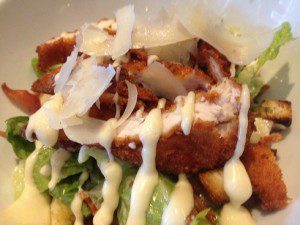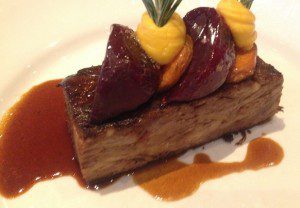
Whether you’re a master chef or a beginner preparing your first holiday meal, make sure you know the safest ways to thaw, prepare, stuff and cook your festive food this Christmas.
While holidays are best known as times to share the kitchen with family and friends, South Western Sydney Local Health District (SWSLHD) Director of Public Health Dr Stephen Conaty said it should also be a time to share good food safety practices.
Last summer (between November 2014 and February 2015), 318 cases of food poisoning were notified to the South Western Sydney Public Health Unit.
The actual number is probably many times higher than this since only around one in five people with food poisoning seek medical attention.
“The common culprits for food-borne illnesses such as salmonella are unwashed hands, cross contamination of foods, and improper cooking practices, especially in relation to outdoor barbecuing,” Dr Conaty said.
“Food poisoning is not only uncomfortable and inconvenient but can result in hospitalisation.
[social_quote duplicate=”no” align=”default”]“The very young, elderly and, in some cases, pregnant women are at higher risk of more severe effects,” he said.[/social_quote]
Public Health Epidemiologist Dr Stephanie Fletcher-Lartey said that the warmer weather creates a good environment for gastro bugs to grow in high risk or perishable foods (those that are low in acid, rich in starch or protein and moist); such as dairy products, meat, fish, egg-based dishes, fresh sauces and salads.
“Use separate cutting boards for raw and cooked foods – especially meats, don’t leave perishable foods out of the refrigerator for more than two hours and always wash your hands before preparing food or after handling raw food,” Dr Fletcher-Lartey said.
However, Dr Fletcher-Lartey said there are important basic steps people could take to help keep food safe and prevent illness.
“Store thawed meats and salads cold in an eskie during a barbecue, and eat freshly prepared foods as soon as possible,” she said.
 ♦ More tips to prevent food borne-illnesses include:
♦ More tips to prevent food borne-illnesses include:
• Thoroughly wash all dirt off any raw vegetables and fruits before preparing and eating them.
• Make sure that food is cooked right through before serving.
• Any leftover meat and poultry should be covered and placed in the fridge as soon as possible. Do not leave it on the counter top to cool first.
• Store raw and cooked food separately in your refrigerator – raw food at the bottom so that it doesn’t drip on to other foods.
• Do not reheat meat and poultry more than once, and try and eat any leftovers within 48 hours of being cooked.
To find out more visit the Food Safety Information Council website.
